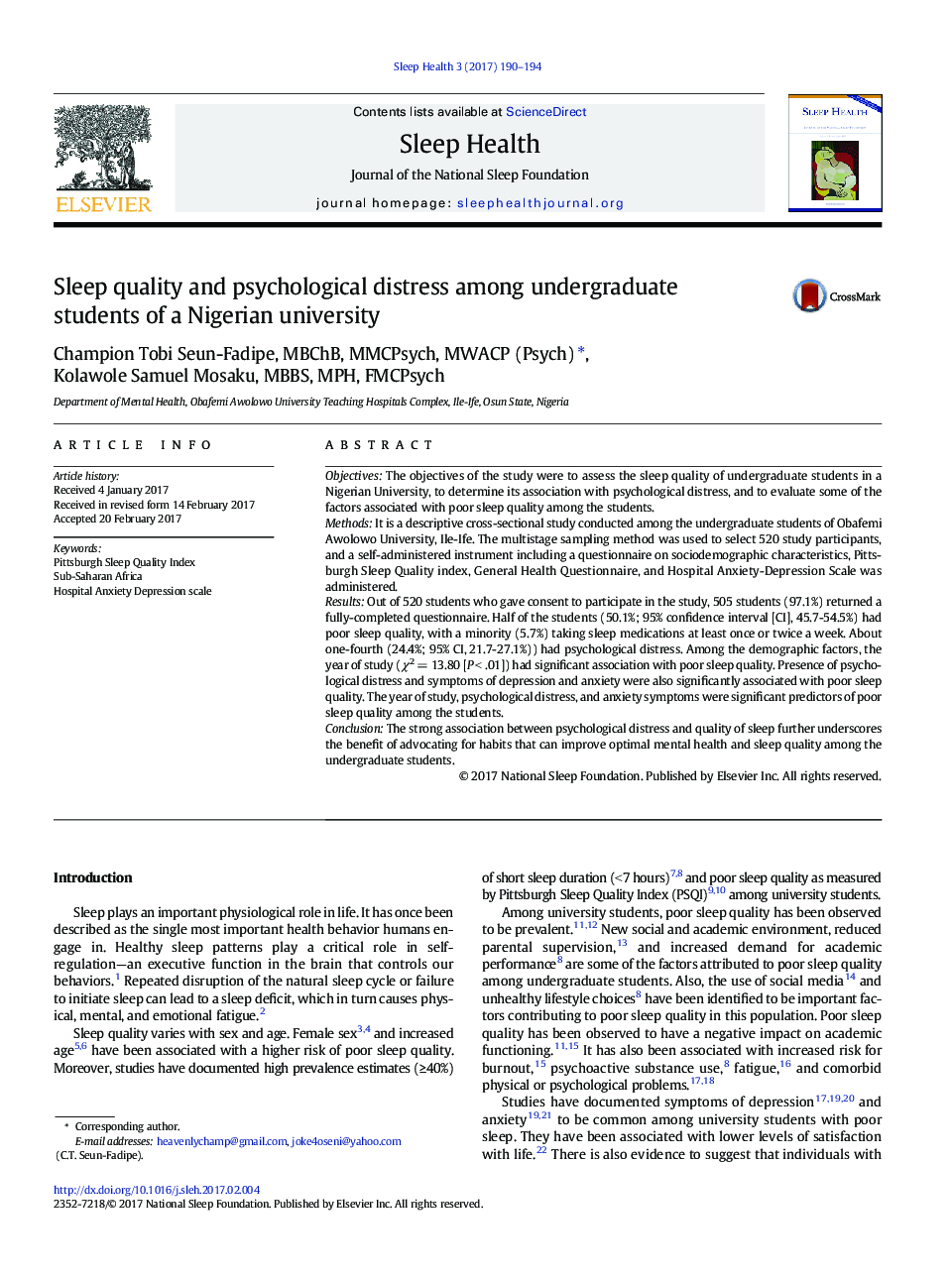| Article ID | Journal | Published Year | Pages | File Type |
|---|---|---|---|---|
| 5039591 | Sleep Health | 2017 | 5 Pages |
ObjectivesThe objectives of the study were to assess the sleep quality of undergraduate students in a Nigerian University, to determine its association with psychological distress, and to evaluate some of the factors associated with poor sleep quality among the students.MethodsIt is a descriptive cross-sectional study conducted among the undergraduate students of Obafemi Awolowo University, Ile-Ife. The multistage sampling method was used to select 520 study participants, and a self-administered instrument including a questionnaire on sociodemographic characteristics, Pittsburgh Sleep Quality index, General Health Questionnaire, and Hospital Anxiety-Depression Scale was administered.ResultsOut of 520 students who gave consent to participate in the study, 505 students (97.1%) returned a fully-completed questionnaire. Half of the students (50.1%; 95% confidence interval [CI], 45.7-54.5%) had poor sleep quality, with a minority (5.7%) taking sleep medications at least once or twice a week. About one-fourth (24.4%; 95% CI, 21.7-27.1%)) had psychological distress. Among the demographic factors, the year of study (Ï2Â =Â 13.80 [PÂ <Â .01]) had significant association with poor sleep quality. Presence of psychological distress and symptoms of depression and anxiety were also significantly associated with poor sleep quality. The year of study, psychological distress, and anxiety symptoms were significant predictors of poor sleep quality among the students.ConclusionThe strong association between psychological distress and quality of sleep further underscores the benefit of advocating for habits that can improve optimal mental health and sleep quality among the undergraduate students.
